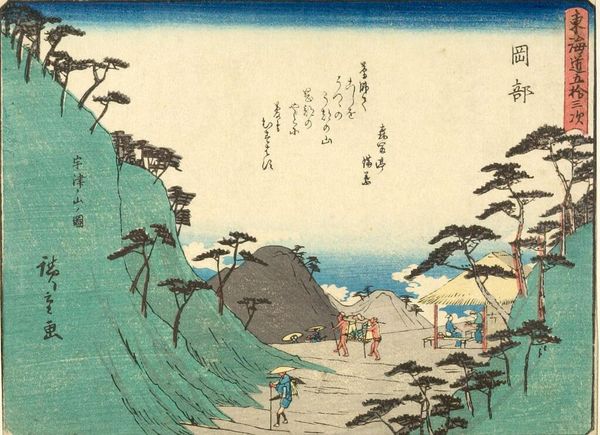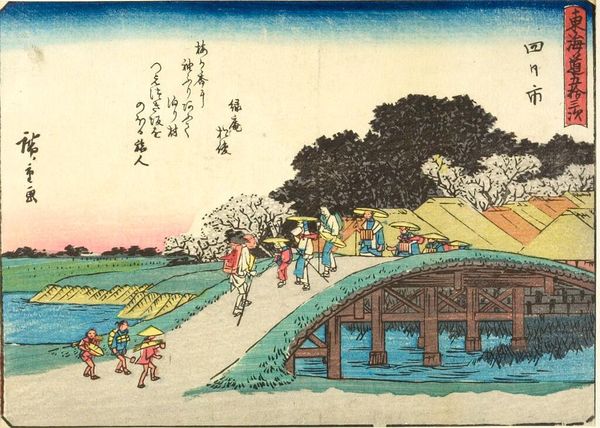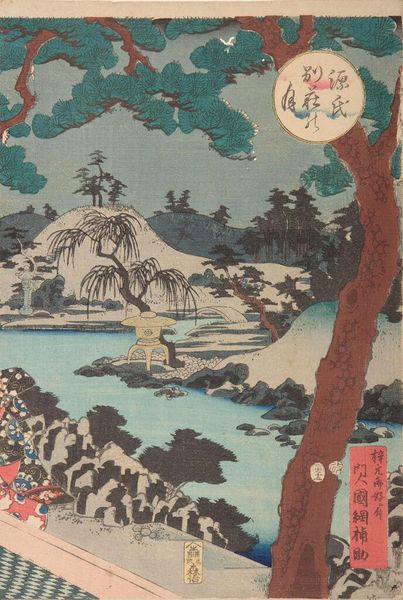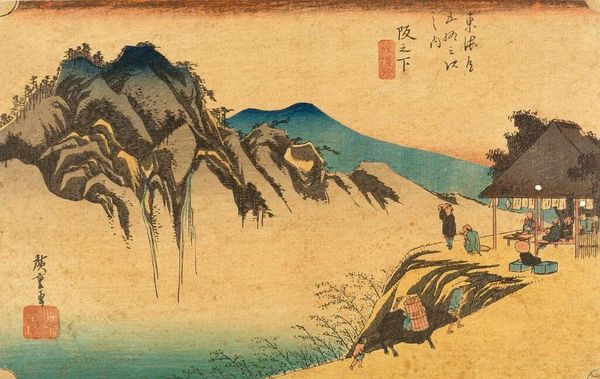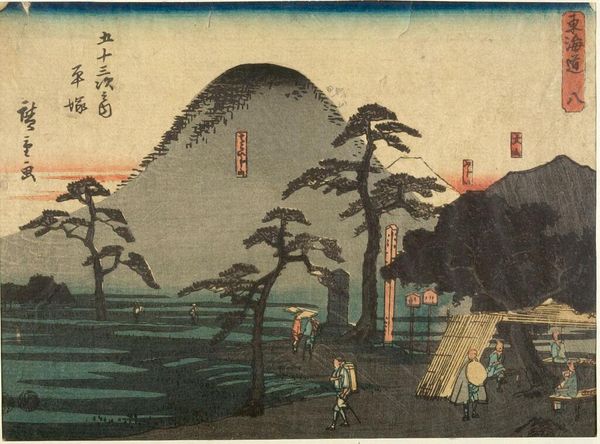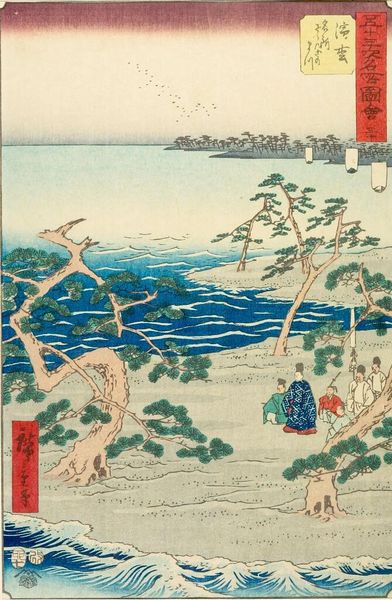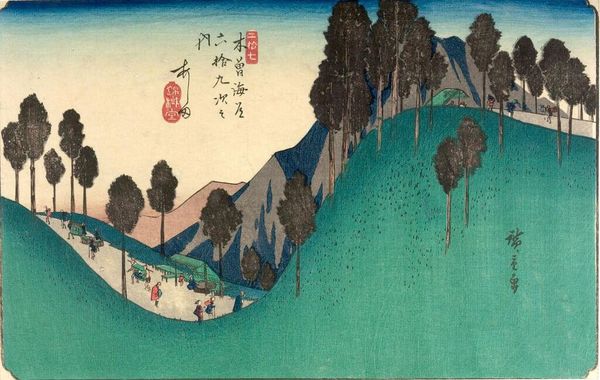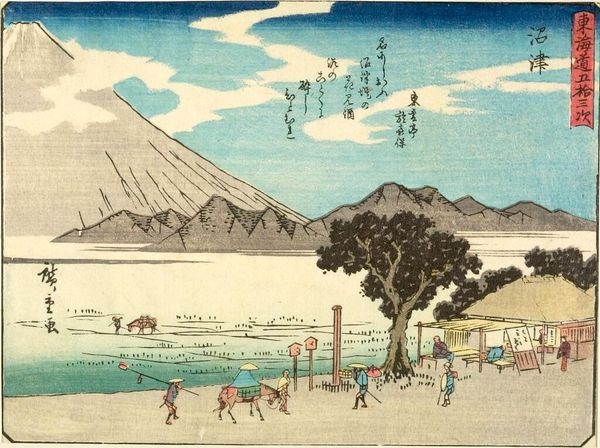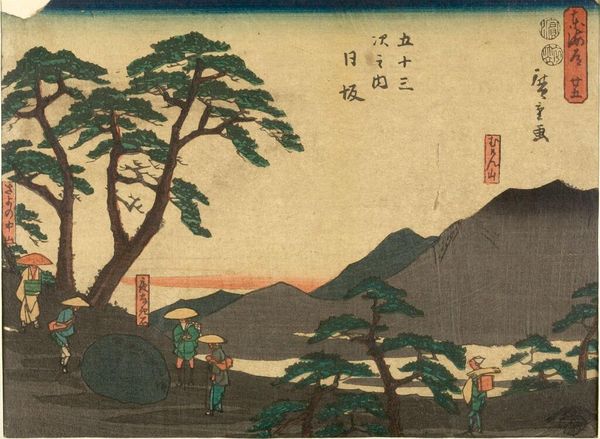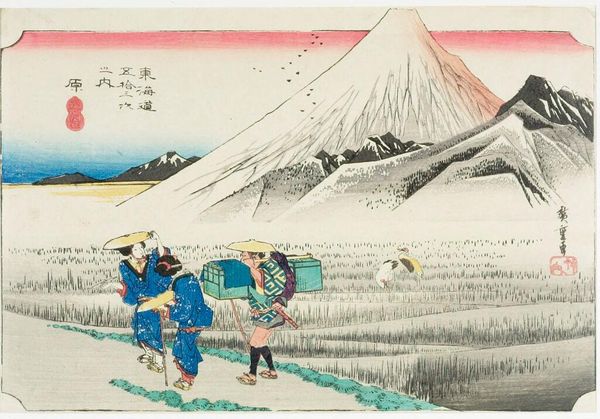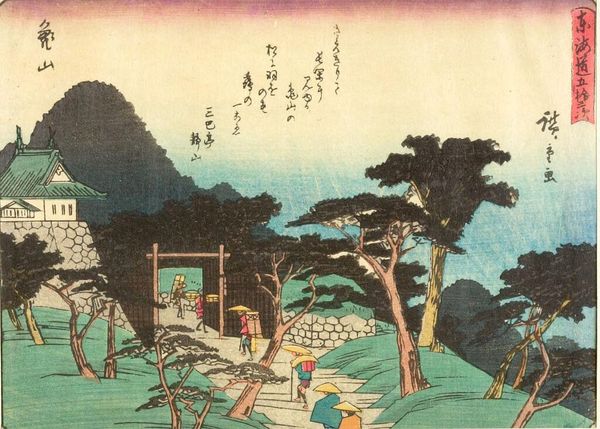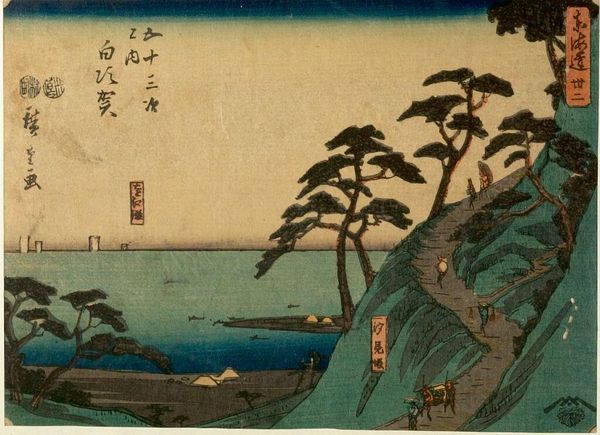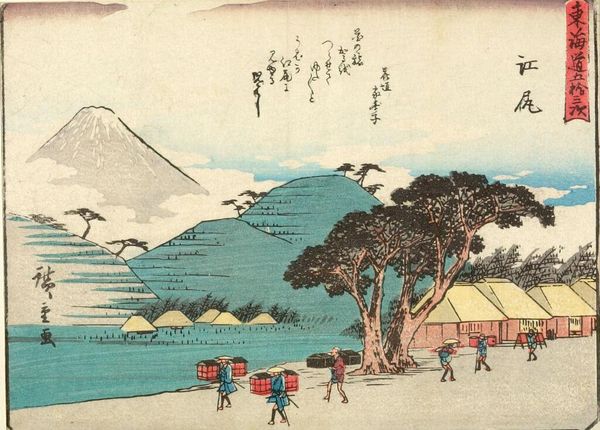
Åmiya, Station 5 from the series "Sixty-Nine Stations of the KisokaidÅ" (KisokaidÅ rokujÅ«kyÅ«tsugi no uchi) c. late 1830s
0:00
0:00
Dimensions: Paper: H. 22.7 cm x W. 35.2 cm (8 15/16 x 13 7/8 in.)
Copyright: CC0 1.0
Editor: So, this is "Åmiya, Station 5 from the series 'Sixty-Nine Stations of the KisokaidÅ'" by Keisai Eisen. It's a woodblock print. I find it really charming and idyllic. What's your take on it? Curator: Well, this print offers insight into the Kisokaido road's cultural significance in 19th-century Japan. Notice how the artist depicts the landscape not just as scenery, but as a backdrop for human activity. It prompts us to consider the social dynamics of travel and labor during that period. Who do you think the print was made for? Editor: Perhaps for people who'd never see these places otherwise? Curator: Exactly! Prints like these democratized access to landscapes and fostered a shared national identity. Consider how they shaped perceptions and narratives about the places they depicted, and who had the power to create those images. Editor: That’s fascinating. I never thought about art shaping national identity that way. Curator: It's a good example of how art actively participates in the construction of culture and collective memory.
Comments
No comments
Be the first to comment and join the conversation on the ultimate creative platform.
